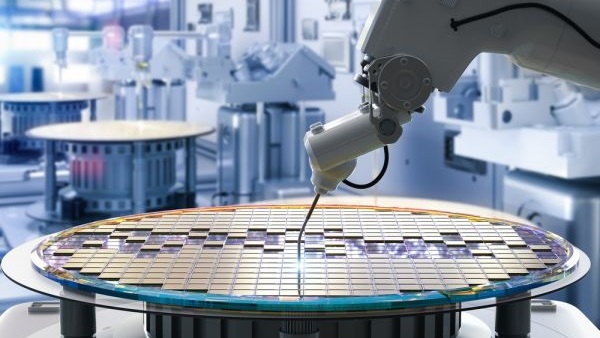Russia buys chips from Intel, AMD, and others to fuel war efforts — the country bought $1.7 billion worth of chips in 2023
Russia re-exports billions worth of chips, including dual-use chips, from third countries.

Despite restrictions imposed on exports to Russia to prevent technology from fueling its war with Ukraine, Russia has imported over $1.7 billion worth of chips from American and European companies in the first nine months of 2023, reports Bloomberg citing classified customs data. Some chips were intended for client PCs; others could be used by Russia's secret services, and the remaining were dual-use chips that could be used for weapons in its war. Over half of the chips originated from U.S. and European tech giants, the report says.
Classified Russian customs service data seen by Bloomberg indicates that in the first nine months of 2023, over $1.7 billion worth of chips were imported to Russia. Of this amount, $1.2 billion worth of chips were made by a total of 20 companies, including producers from Europe and the U.S., leaving an estimated $500 million worth of chips likely accounted for by other, smaller manufacturers. While imports of chips to Russia reportedly declined in the fourth quarter, it is highly likely that the country still procured over $2 billion worth of various chips in 2023.
Notable brands involved included AMD (including Xilinx), Analog Devices, Intel (Altera), Infineon Technologies, Macom, Marvell, Microchip Semiconductor, NXP Semiconductors, STMicroelectronics, Realtek, and Texas Instruments. This significant influx of high-tech components came despite restrictions meant to limit Russia's military capabilities, raising questions about the efficiency of the sanctions and the complexities of global supply chains.
A large portion of these restricted chips reached Russia through re-exports from third countries, including China, Turkey, and the United Arab Emirates. The U.S. and EU have been actively trying to block these alternative supply routes, but so far, they have not been very successful. They are particularly focused on stopping the flow of dual-use and advanced goods that have been identified in Russian weapons used in Ukraine or are crucial for their production.
Major companies like AMD, Analog Devices, Intel, Infineon, Marvell, Microchip NXP, STM, and Texas Instruments told Bloomberg that they adhere to the sanctions. They indicated that they had ceased business operations in Russia following the outbreak of war and had implemented rigorous processes to ensure compliance. Additionally, they emphasized their commitment to preventing the illicit diversion of their products (i.e., they specifically prohibit their re-exports to Russia and Belarus), and said they were working closely with relevant authorities to monitor and control the distribution of their chips.
It should be noted that a significant portion of chip sales in the industry are handled by distributors who, in turn, have multiple resellers. The nature of this distribution chain means that manufacturers are not always able to track where their products end up after being sold to these companies, although certain specific military-use chips are subject to stricter tracking requirements.
The situation highlights the challenges faced by the U.S. and the European Union in trying to cut off the supply of advanced technology to Russia’s military. The sanctions were designed to hinder Russia's ability to produce military equipment, such as tanks and missiles. However, the continued import of these chips suggests that Russia has been able to sustain its production of military hardware, which undermines the intended impact of the sanctions.
Get Tom's Hardware's best news and in-depth reviews, straight to your inbox.
Meanwhile, the European Union is working on developing a new sanctions package. Several member states are advocating for more stringent measures, especially targeting companies in third countries involved in the trade of these chips, as well as those originating within the EU itself.

Anton Shilov is a contributing writer at Tom’s Hardware. Over the past couple of decades, he has covered everything from CPUs and GPUs to supercomputers and from modern process technologies and latest fab tools to high-tech industry trends.
-
Ice2burn Welcome to the capitalism and free market, even 4070 ti super already available in Russia, though, not even close to msrp.Reply
Also, it's prohibited to use US chips and integrated circuits in the Russian military industry in order to avoid data leaks and possible vulnerability exploits.
Chip size doesn't matter in the big weapons, so it's posible to use even 350nm process, which is old, but Russia can manufacture by itself. -
Co BIY Is this number of chips imported less/more /or the same as pre-war/pre-sanctions levels ?Reply
Even if the dollar amount is the same, if the average price is much more it may be creating a queeze.
Unfortunately in a large global economy it is very hard to prevent "misuse" of small amounts of dual-use technologies by determined nation-state actors.